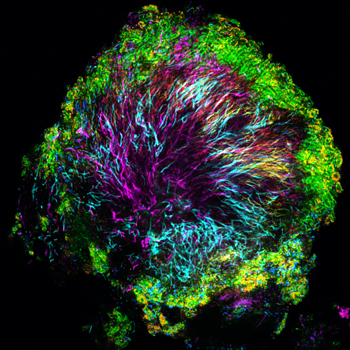New Sequencing Approach Offers Insight on Microbiomes in Changing Environments

Microbial communities have been evolving with their host environments for millions of years, whether that be inside the human body, in soil, or in the ocean. With the advent of rapid DNA sequencing, researchers have been able to identify organisms and genes present in these microbial communities. But it is often difficult to decipher the microbes’ real-time responses to environmental changes.
Transfer RNAs (or tRNAs) in microbial cells – which translate genetic information from genes into proteins – could give scientists this information. Now, a new technique called tRNA sequencing (or tRNA-Seq) can enable scientists to identify changes in tRNA biology as microbes encounter environmental shifts.
With a grant from the Keck Foundation, scientists from the University of Chicago and MBL Distinguished Scientist Mitchell Sogin have begun to develop tRNA-Seq and an accompanying bioinformatics pipeline to analyze microbiome samples from diverse environments.
 The microbiome in the human mouth will serve to validate t-RNA seq for studying microbial community responses to environmental change. Photo credit: Jessica Mark Welch, Marine Biological Laboratory
The microbiome in the human mouth will serve to validate t-RNA seq for studying microbial community responses to environmental change. Photo credit: Jessica Mark Welch, Marine Biological LaboratoryThey are exploring using tRNA-Seq to study community dynamics in the mouse gut and human oral microbiomes and to study biological rhythms and daily variations in gut microbial communities.
The first of these studies was published late last year in Nature Communications and is the first time tRNA-Seq was used to study the microbiome. Co-led by UChicago Professor Tao Pan and MBL Fellow/UChicago Assistant Professor A. Murat Eren, the team characterized gut microbiome tRNA samples of mice that were fed a low-fat or high-fat diet. By tracing the tRNA molecules back to their corresponding bacteria and identifying diet-dependent tRNA modifications, the team demonstrated that tRNA status can be used as molecular markers for enzymatic and metabolic activity.
The addition of tRNA-Seq into the arsenal of sequencing tools for studying complex microbial communities provides an exciting way to observe real-time responses to changing environments that was not possible before.